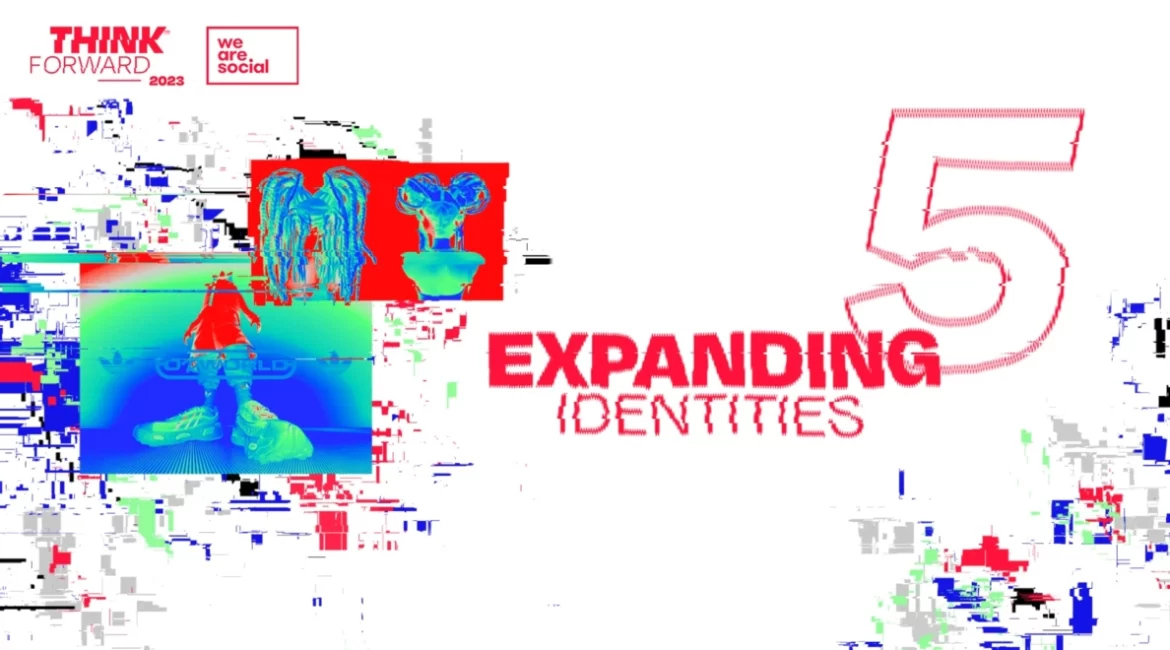At the end of last year, we launched our annual trends report- Think Forward 2023: Fragmented Futures. It features the five key trends that we expect to shape social media over the next 12 months. This post looks at the final trend covered in the report: Expanding Identities. For more, check out the full Think Forward report here.
Virtual worlds are making online identity more flexible and expansive.
Now, as we enter an even more VR- and AR-inflected realm of social, it’s opening up new avenues for identity expression. It’s part of why the ability to self-represent in virtual worlds – whether with accuracy, playfulness, or nuance – is a major cultural touchpoint, not to mention big business. This is a generation that’s investing in its online identities, spending $54bn in 2022 on digital goods, including skins, avatars and accessories.
Against this backdrop, legacy brands and creators alike are furiously flexing their own products and IP to support more open self-expression in online worlds – whether that’s gamers like @xmiramira creating melanin packs to perfect Black Sims characters’ skin tones, or Balenciaga launching its first fully digital collection. From this vantage point, the metaverse doesn’t start with a place – it starts with a player.
The Behavioural Change
- Users are trying to create worlds that are ‘diverse by design’
Underrepresented communities are trying to get ahead of real-world issues of inequality in the metaverse, before they can become ingrained. Representation is a central focus, with people trying to create equitable presence from the get-go. - Fans are inhabiting their idols’ identities
In Asia, fans of VTubers (Virtual YouTubers) are taking fandoms to the next level. In an expression of love for their favourite influencers, fans are using realistic imitations created by AI Art Generators to essentially take on the identity of their idols.
- Young people are bringing what defines them online- and cashing in
From launching sustainability-focused Depop stores within The Sims to children taking over their own advertising within Roblox, the line between “producer” and “consumer” is blurring rapidly.
Brand examples
Learn from adidas
adidas Originals’ Ozworld platform saw users answer questions about their personalities. They were given bespoke avatars that embodied their psychological identity, rather than their physical traits.
Learn from Bakeup
Bakeup is a metaverse-first beauty brand. It designs its products to work across multiple worlds. In doing so, it creates a through-line between a person’s many selves – their IRL self, self on social, and self in virtual worlds – cementing the sense that our digital selves are not only real and valid, but intimately entangled with who we are offline.
Read more about Expanding Identities, and the four other trends featured in Think Forward 2023: Fragmented Futures.

